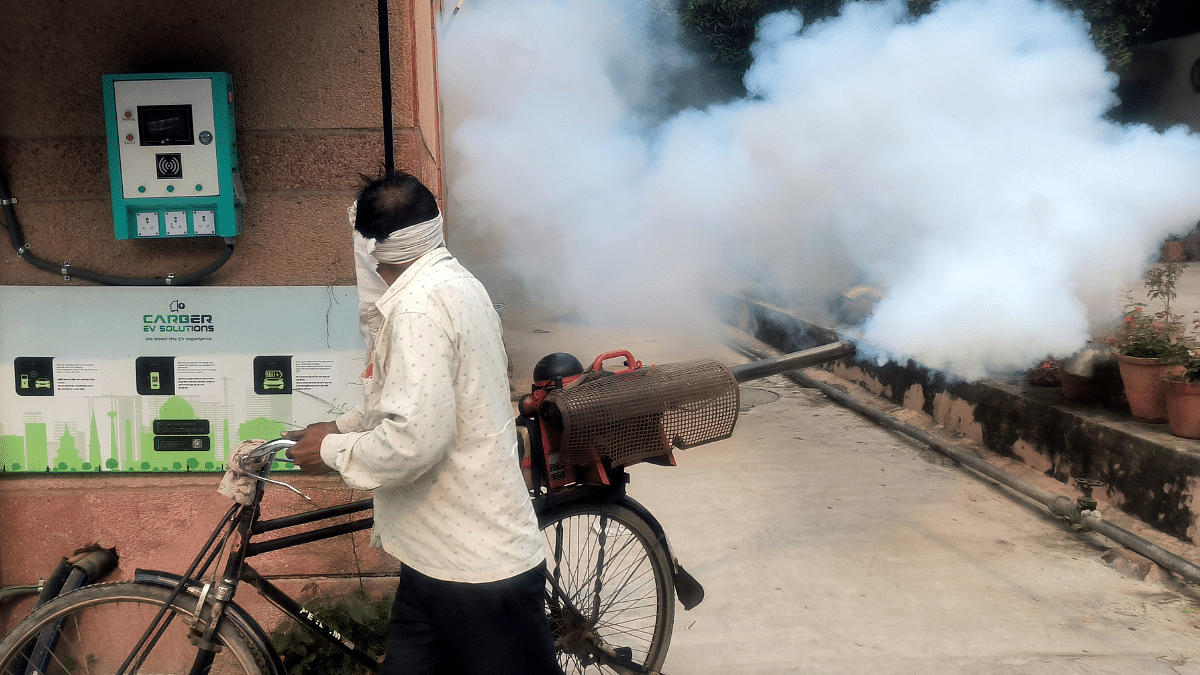New Delhi: A study involving children hospitalised due to dengue in India has revealed that primary infections are as likely to turn severe or fatal as secondary infections. So far, doctors, among others, have held the belief that secondary infections are more likely to turn severe or fatal.
The study, published in Nature Medicine this February, analysed 619 children across three hospitals from 2012 to 2018. The virus had infected more than half the children, 344, for the first time. Those children accounted for more than half the severe cases — 112 of 202 total. They also accounted for more than half the fatalities — five of the seven total. That confirmed severity is not linked with primary or secondary infection.
“Our findings question the current widely held belief that severe dengue is predominantly associated with secondary infection and emphasise the importance of developing vaccines or treatments to protect dengue-naive (not infected before vaccination) populations,” the researchers said in the study.
The researchers studied children at the All India Institute of Medical Sciences (AIIMS) in Delhi, Christian Medical College (CMC) in Vellore, and St. John’s Research Institute (SJRI) in Bengaluru. They are associated with AIIMS, CMC, SJRI, International Centre for Genetic Engineering and Biotechnology in Delhi, Translational Health Science and Technology Institute in Haryana’s Pali, and Emory University, US.
“This is an important study that challenges a scientific dogma, which got rooted in the last two to three decades, and we hope that it will encourage further research, mainly at the field level, while also influencing the dengue vaccine-related policy,” Rafi Ahmed, an Indian-American virologist and immunologist associated with the Emory Vaccine Centre and a co-author of the study, told ThePrint.
He said that the study focussed mainly on the paediatric age group, but adults will likely show similar results. Nearly 40 years ago, he added, there was a line of scientific thought that the severity of dengue had nothing to do with repeat infections, which changed later.
Dengue cases have increased in India over the past two decades. The country now reports among the highest numbers of cases globally. The disease is mainly spread by Aedes aegypti mosquitoes and, to a lesser extent, by Aedes albopictus mosquitoes.
In 2023, till 17 September, the country had reported 94,198 dengue cases and 91 fatalities due to dengue, according to the Union health ministry.
Also read: Climate change pushes dengue into new frontiers across India
Key findings
The children in the study included boys and girls between the ages of 2 months and 16 years.
The researchers classified them as either primary or secondary infection cases based on the ratio of the index values of dengue-specific plasma IgM- and IgG- types of antibodies using standard-capture enzyme-linked immunosorbent assays (ELISAs), according to the WHO guidelines. The ELISAs showed 344 primary infection cases and 275 secondary infection cases.
The researchers then determined disease severity, according to the WHO guidelines. Of the 619 children, 202, i.e., 32.6 percent, had severe dengue. While the primary infection cases accounted for 32.5 percent of the severe cases, the secondary infection cases accounted for 32.7 percent, showing there that is no link between severity and primary or secondary infection.
During the study, seven of the children at AIIMS died. All of them died within 24–48 hours of admission with severe dengue. Five had the primary dengue infection and two had the secondary infection.
“Our results, showing similar frequencies of severe disease in primary and secondary dengue infections, was an interesting but surprising finding,” the researchers said in the study.
The usual dengue symptoms are high fever, headache, vomiting, muscle and joint pain, skin rashes, and itching. Some people can show severe symptoms, which include dengue haemorrhagic fever, bleeding, low platelet levels, blood plasma leakage, or dangerously low blood pressure.
Also read: Japan firm Takeda’s dengue vaccine gets WHO panel backing, but no nod yet for phase 3 trials in India
Message for vaccine makers
There are four dengue virus serotypes — DENV 1, 2, 3 and 4. Any can cause a severe infection. For a long time, scientists and doctors have warned against secondary infections with a different dengue serotype because of a process called antibody-dependent enhancement (ADE). This involves pre-existing antibodies to one serotype binding to the virus particles from a new serotype but failing to neutralise them and aiding their growth.
Ahmed, however, called for a review of the vaccine development and administration policy in the wake of the new evidence. “This is particularly important for children and naive individuals (who have not been infected yet),” he said.
So far, two dengue vaccines have global approval.
Dengvaxia by Sanofi remains licensed in 19 countries and the EU but only for those with evidence of past dengue infection.
Qdenga by Takeda Pharmaceuticals remains approved for sale in the UK, the EU, Brazil, Argentina, Indonesia, and Thailand for anybody over four years of age, including those not previously infected.
Qdenga is awaiting regulatory approval for a Phase 3 clinical trial in India.
At least three Indian companies — the Serum Institute of India, Indian Immunologicals Ltd and Panacea Biotec — are also developing vaccines, aimed at protecting against all four strains of dengue.
(Edited by Madhurita Goswami)
Also read: Waiting for universal dengue vaccine and drugs, South Asia battles ‘silent pandemic’

